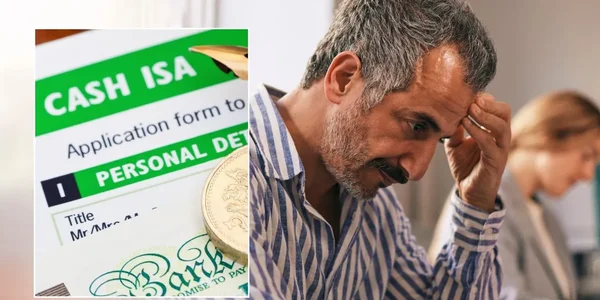Introduction
With just weeks to go before the government’s budget statement on 26 November, Chancellor Rachel Reeves is facing rising pressure to justify the need for increased taxation.
Uncertainty is growing among the public, stakeholders, and political analysts regarding the government’s approach to addressing a substantial fiscal shortfall, which official estimates put at around £40 billion. While it is widely anticipated that taxes will rise in the upcoming budget, the rationale and details behind these measures remain the subject of considerable debate.
Many have questioned the government’s reluctance to communicate the justifications for new tax decisions, particularly after pledges made to shield working people from additional tax burdens. This lack of clarity has fuelled both speculation and concerns, as citisens and experts alike seek reassurance about how tax increases will impact the fabric of British society, public services, and the economy in the face of persistent challenges.
Mounting Pressure Ahead of Budget Day
Chancellor Rachel Reeves and Prime Minister Keir Starmer are confronting calls from across the political spectrum to clarify the government’s tax approach ahead of the crucial budget statement on 26 November.
Financial commentators and think tanks have long warned that the United Kingdom faces a significant gap between public spending commitments and available revenue. As the date approaches, speculation abounds regarding whether Labour will honour its pledge not to raise income tax, national insurance, or VAT, three key revenue sources accounting for nearly three quarters of total tax receipts, according to the Institute for Fiscal Studies (IFS).
Although Chancellor Reeves has, on several occasions, reiterated her commitment to protecting working families from direct tax increases, market analysts and advisers close to government report little movement in terms of setting the political narrative or openly explaining the unavoidable need for additional revenue. Outside Parliament, politicians and financial experts continue to debate the wisdom of electoral promises that restrict the government’s fiscal flexibility.
Many observers argue that the lack of a government-led public discussion about tax leaves room for uncertainty that could undermine trust and complicate necessary reforms.
Public Understanding of Taxation Remains Absent
Despite the looming necessity for increased revenue, there is concern among commentators that the government has not adequately explained why taxes must rise. Instead, much of the national conversation is focused on whether Labour will break campaign promises, rather than the need to fund core public services and repair the damage left by years of austerity.
Research by the IFS underscores that the United Kingdom collects less in overall tax as a proportion of GDP than many comparable European countries. Public services, from the NHS and education to local councils, have seen resources stretched and standards challenged in the context of rising demand. Advocates for reform argue that this should be a moment for the government to champion the broader benefits of taxation, describing it not as a burden, but as the essential price of maintaining a modern, equitable society.
Experts including the National Institute of Economic and Social Research have echoed these sentiments, calling for a refreshed narrative that links taxation directly with the security and quality of daily life for families and communities.
Thatcher’s Legacy and Public Attitudes
The public debate over tax in the United Kingdom has been shaped by significant historical context. On the centenary of former Prime Minister Margaret Thatcher’s birth in October 2025, many commentators revisited her government’s role in reframing taxation as an undesirable imposition, rather than a civic contribution.
Thatcher’s policies have been credited with sparking a profound shift toward lower taxes and personal wealth accumulation, a legacy that continues to inform both policy and public attitudes. Analysts point to the resulting rise in wealth inequality, which has become more visible as private affluence often stands alongside underfunded public services.
According to the Resolution Foundation, the gap in wealth between those entering retirement and those in their early working years has more than doubled since 2008, driven largely by property prices and not by entrepreneurial activity. Against this backdrop, proponents of change argue that a renewed, positive account of why taxes matter is essential to building public consent for fiscal reform.
The Challenge of Equitable Tax Reform
Many policy specialists agree that broad-based tax reform is essential for addressing the UK’s fiscal and social challenges. While raising taxes solely on wealthier individuals may appear politically attractive, analysts such as those at the IFS warn that it would not be sufficient to meet the scale of spending required to restore public services and sustain social programmes.
The Resolution Foundation has highlighted the need for fairer and more comprehensive changes. Its research suggests that incremental adjustments, such as equalising tax rates across all forms of income and addressing disparities in capital gains taxation, could help broaden the tax base.
Additionally, proposals under discussion include altering pension tax relief and reforming property taxes to reflect shifts in private wealth accumulation.
However, many in the policy community believe that meaningful progress will be possible only if the government directly addresses the trade-offs required. In their view, the lack of engagement and communication thus far threatens the success of even moderate reforms.
The Political Cost of Tax Promises
Labour’s pre-election pledge not to raise income tax, national insurance, or VAT is now the subject of fierce debate. The promise, made with the intention of reassuring voters amid the cost-of-living crisis, is estimated to cover around three quarters of UK tax revenue.
Critics in economic circles, including Professor Sam Freedman of the London School of Economics and the IFS, have argued that such a commitment restricts the government’s options. With the scale of the fiscal shortfall now clearer, some experts maintain that income tax remains the least economically disruptive method for raising revenue.
Yet, according to reports, the Treasury has not scheduled any formal work to explore the impact of breaching the “three tax” pledge. Internal government sources suggest that the political calculation remains focused on protecting working individuals while seeking alternative means to raise additional funds. Some commentators see this as a missed opportunity to be candid with the electorate about the scale of the financial challenge.
What is Happening
As the United Kingdom approaches its 26 November budget, the debate on tax reform has become increasingly urgent. Labour, under Chancellor Rachel Reeves, faces the complex task of reconciling campaign promises with the practical necessity of increased government revenue.
Expert analysis suggests that without significant reform, public services will remain underfunded and inequalities could widen further. Policy leaders and official reports highlight the limitations of the current tax system and point to feasible paths for fairer and more transparent taxation. Yet, the











